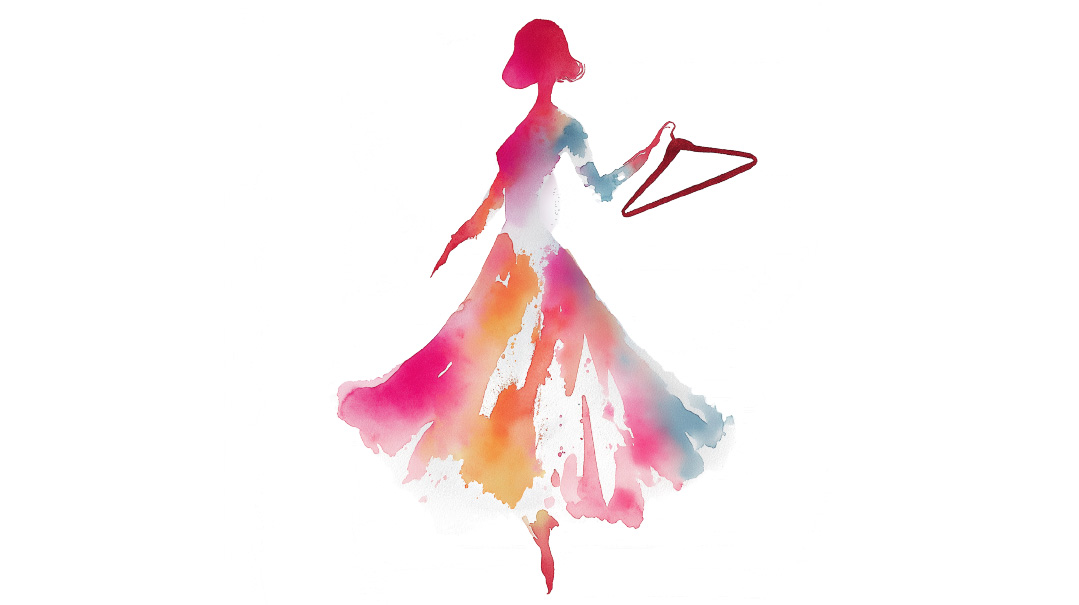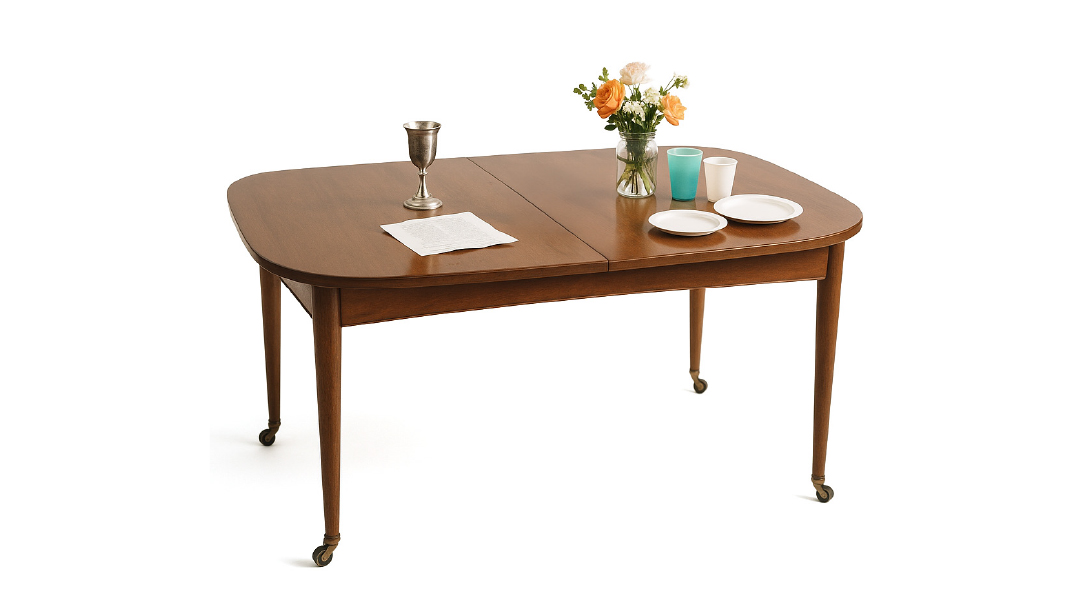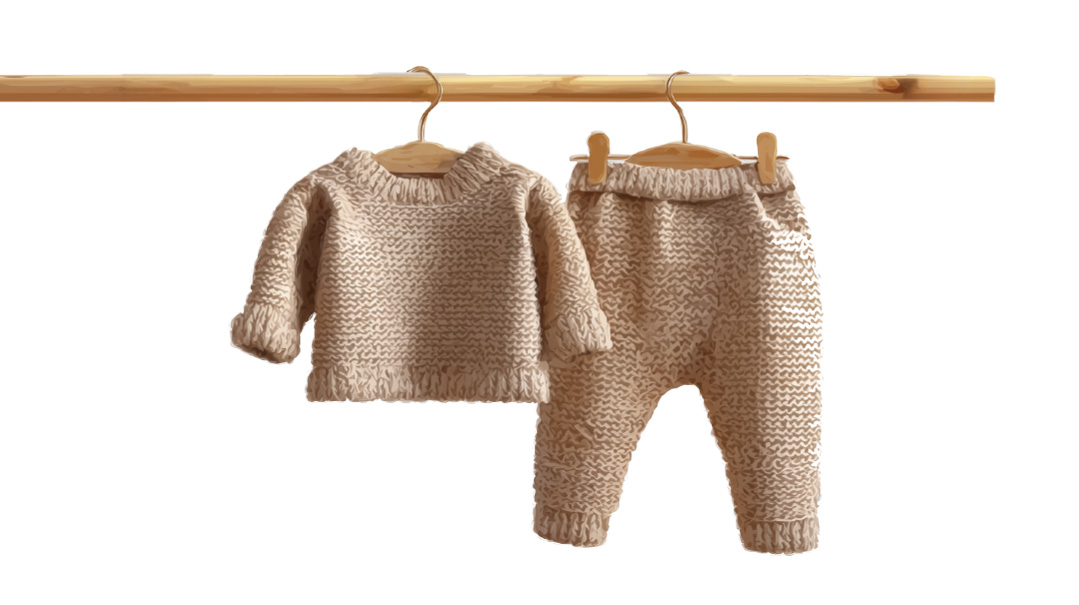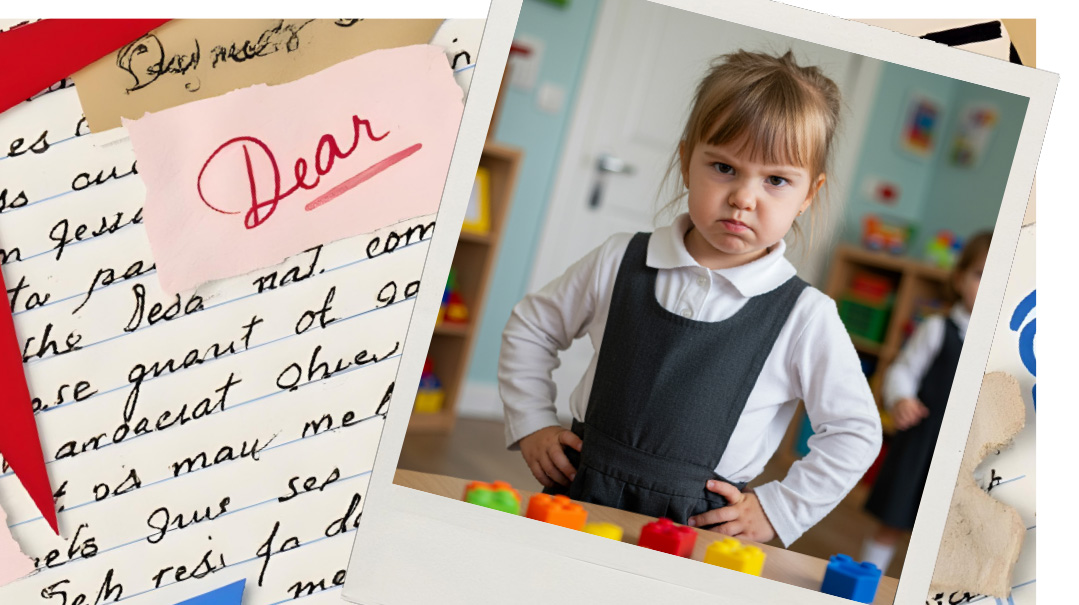Irreplaceable
| September 19, 2023My father is newly, blissfully remarried— and I can’t stand it

IT
was his grin that unraveled me.
So wide, I almost expected a cat to appear.
I blinked hard. Possibly my brain was half addled, what with the noxious perfume produced by the roses stuffed in every corner.
Three-quarters addled, by so much heavy. My childhood home, unrecognizable. Smothered by layers upon layers of suffocation.
Brocade curtains. Velvet tablecloths. Frames and figurines, miniatures and ornaments and so much clutter I couldn’t or wouldn’t identify.
That, paired with Friday night postprandial heaviness, and I was bound to hallucinate.
I turned to Aunt Dee, trying not to wince at the chair she was ensconced in. Pink and gold?
“Where did you say you’re going?”
Her eyes danced, eyebrows flexing upward as she beamed the smile that had drawn all the neighborhood kids to love her, me included.
“We’re off to Alaska next month! Didn’t Ta tell you?”
I glanced at my father. No, “Ta” hadn’t breathed a word.
Even now, he sat silently, unwrapping a mint thin. But grinning.
I looked over at Shiffy, but she was searching for a tissue. My sister’s allergies, right. In this ridiculous hothouse, what should I have expected?
“Shiffy?”
She sneezed twice, violently enough to set aquiver the teardrop crystals belonging to the chandelier hanging low over our heads.
I waited until she had finished destroying the makeup around her nose.
“Tatty and—” I stopped, because I still called her Aunt Dee in my head. I was certainly not going along with Savti. “They’re going on a trip, did you hear about that?”
I looked around to see if our husbands were listening, but nope. They had been swallowed by the massively stuffed armchairs on the other side of the dining room, legs sprawled over frills. I could see a hand holding a crystal tumbler; heard a low laugh. So they were alive.
Shiffy sneezed again. Tatty started on another mint.
A nameless something crept up my throat.
See, I had been doing just fine in all this ridiculousness. Fine.
So the cute neighborhood widow whom everyone loves — and forgets to feel sorry for because she’s been alone for so long and manages her life better than anyone — made news. She’s finally engaged, after 30 years! Isn’t that wonderful.
It’s more than wonderful and we’re all walking around with goofy blissful grins, because it’s just the cutest shidduch. Across the street!
Even now, thinking about it, heat flooded my cheeks — not all of it from the floral carpet marinating us in carbon dioxide.
Cutest shidduch! The Schuster widower, how perfect! Sure, both kids married. Poor man, wife ill for so long.
Sure, she’ll move into his house; why should she stay in that tiny apartment she’s lived in her whole life when he has a mansion?
Sure, Aunt Dee would move into the home of my youth and turn it into a massive tea cozy.
Slowly but surely, the neat, clean home Mommy had meticulously kept was being buried under more frippery and frappery than any human could possibly call normal. Gold tassels. Pleats and ruches and corpulent couches.
“Yeah, to Alaska!” Shiffy was rallying round.
“You knew?”
She threw a grin at Aunt Dee.
“I think it’s such a good idea! Where are you flying to first?”
The nameless thing poured into my throat, flooding it with something so bitter I could neither swallow nor open my mouth.
Travel plans for my father and his wife. Travel plans for a man who had never gone on vacation voluntarily in his life. Business or coercion, that’s how it always went.
I threw a glance at the head of the table. He was on his third mint. This was a man whose eyes had glazed over before we ate the main course every Friday night since we could form coherent memory.
Tired. Busy. Rushed.
“Just for an extended weekend, Naftali. The kids need it!”
Tatty, reaching into his pocket for his wallet. Unfailingly generous with his money.
“Take, Riva. Let the girls go on all the rides. Ice cream and pizza all Sunday, kids!”
A quick wave, a cheery goodbye. Mommy diminished again, quietly tucking the wad of bills into her pocketbook as I pinched Shiffy just for diversion.
Not this man leaning back on another pink-and-gold monstrosity, lips stretched so wide he could live in Cheshire, rosy-cheeked as he threw back the last of the bronze liquid in his glass and laughed.
I stood up then, afraid of what I might say to destroy this scene of domestic bliss. I needed air.
“AZ?”
My husband’s head popped up from behind an engorged throw pillow. “Yeah?”
“I… we told your parents we wouldn’t be out too late. Let’s go?”
“Didn’t they say they’re going to sleep anyway, we could take as long as we wanted?”
Read my mind.
“What if the baby needs to eat already? He fell asleep too quickly.”
“Nah, Navs. We’ve got time.”
“Polar bears?” I heard Aunt Dee behind me. “Don’t be silly, Shiffy. No polar bears where we’re going.”
They laughed then, Shiffy and Aunt Dee.
And Tatty joined in.
I was going to choke. I was going to collapse.
“AZ, we need to go.”
I don’t even know how it happened, then.
I walked toward those ridiculous armchairs, past the horrendous sideboard with its gold legs and marble inlay. All I wanted was for my husband to see how I couldn’t stay here another second, to see how acting in a play whose scenes were becoming more farcical than the props was killing me.
I turned then, pulling my shawl across my shoulders.
“Good Shabbos, Tatty, um—”
I felt a slight tug as the fringes of my shawl caught on something, and I spun back, felt my outstretched fingers miss a black-and-gold something by a hairsbreadth as it swooped into a graceful dive to the piece of flooring not covered by rug, and exploded into a million fragments.
After the split second of initial shock, I found myself needing to tamp down a laugh. Maybe it is like scientists say — the part of the brain holding the emotions that make you want to cry is right next to the one that makes you laugh.
Or maybe the tableau in front of me was just the final act of this tragicomedy and an invisible audience, overcome with hilarity, would soon be getting to its feet to applaud the actors. And the props — especially the props.
AZ was struggling to release himself from the innards of the armchair. Shiffy had leaped to standing, one hand holding her used tissues, the other pressed to her mouth. Yitz, her husband, had managed to extricate himself from the other armchair but couldn’t seem to decide where to go or where to put his tumbler.
Tatty was at my elbow, repeating oy vey to himself in a dazed sort of manner.
Then Aunt Dee appeared with a brush and shovel. (A regular black one, I was aware enough to note. No gold.)
No one prompted me, but sense dictated that I insist on being the one to clear up the mess, and she insist that no, it was absolutely fine even though it clearly wasn’t, because her permanent smile was gone.
So we all stood around watching Aunt Dee sweep around the gilded curlicued legs of the side table (should they arrest the people who make carpenters cut their fingers to ribbons making those?), silence punctuated by my murmured apologies.
Tatty had removed himself to get a bag to dispose of the fragments. I waited for someone to cut themselves, but apparently that would have meant too much drama for good taste.
Shiffy and Yitz seemed to come to some unspoken decision about leaving, too, so we ended up hustling past each other down the dark, fussy hallway, me being extra careful not to dislodge some other piece of decoration.
I felt a flicker of sadness then. Two years ago, I would have jabbed Shiffy in the ribs and asked her sotto voce if she thought anyone would notice one less piece of bric-a-brac. Maybe I had done someone a favor. And Shiffy might have whispered back that Aunt Dee’s interior designer must have had a subconscious Victorian death wish. And we would have carefully looked away from each other before one of us sparked a laughing fit.
As it was, Shiffy hugged Aunt Dee, and waved to Tatty. Then, she wished me good Shabbos, cool as a stranger, and walked off.
I should have probably spent Friday night in agonies — reliving that split second of me missing the vase, seeing it shatter again and again.
I didn’t.
There was the slightest prickle of discomfort that I was loath to explore as we made our way home, and then we walked in to an inconsolable Tuli and both my parents-in-law in a state of rumpled helplessness.
Then a very long Shabbos of hosting, parenting two adorable redheads hyped up on sugar, plus a fussy baby, and it’s no wonder my brain conveniently and neatly stored away the previous night’s events.
So it was only when the sun was streaming low across the couch and I got up to close the blinds, that I thought of Shiffy for the first time since our botched visit.
We had invited them for Shalosh Seudos. A sick feeling pooled in my stomach as I wondered if she’d find some excuse not to show up. My parents-in-law wouldn’t get too curious — anything could happen on a long Shabbos afternoon. AZ wouldn’t think much of it, either.
But I’d know. And it would be another fracture in a relationship I always thought was made of metallic glass — tough. Corrosive-resistant. Possessing the soft magnetism of the things we saw, the things we did. All the things no one knew about.
MY father-in-law had just lifted the challah and sounded out the first syllable of the brachah when the screen door slid open and Ayala bounded in.
“We came! We came!”
A chorus of nu-nu-uhs, heads and arms motioning to the sink, and all of us waited in silence as Yitz, Shiffy, and Ayala washed and sat down.
It was easy around the kids. Elbows in plates, spilled techinah, squalling and squealing until I heard Tuli’s crying above the din and got up to see to him.
“What was all that about?” I looked up to see Shiffy leaning against the doorjamb, arms crossed, shoulders squared like a security guard.
I picked up the baby and sat down on the rocker.
“What was all what about?” Playing for time.
“You. Last night.”
I hate it when Shiffy pulls the big sister card. Just under a year — it didn’t make much of a difference when we were growing up. One grade up, one grade down. No big deal.
But now she’s the adult and I’m the unreasonable one.
“You think I did that on purpose?”
“Not exactly on purpose. But whirling around like some drama queen because you can’t stand” — and Shiffy actually made air quotes — “Aunt Dee? And her plans to go away with Tatty?”
Tuli was fussing, so I crossed over to the changing table.
Shiffy followed.
“And standing there, very clearly not sorry, as she bent down and cleared up your mess?”
I would not give her the satisfaction of seeing my face. I bent over Tuli and tickled him through a thickening of my throat and the heat in my eyes, waiting for some anger to cover the upset.
“I offered to clear it up, but she didn’t let! How can you blame me for something that could have happened to anyone, especially in—” No. No, don’t go there. “Especially when it was so late! I was tired. Mistakes happen.”
“Funny, though. How that kind of mistake happened just then. Just there. How much longer are you planning to behave like a ten-year-old?”
When I was ten years old, we sat at Aunt Dee’s little table, kicking the table legs. We sprayed chocolate chip cookie crumbs over each other as we vied for the best school story of the day. Chevy Krausz broke her arm, Shiffy announced. I countered with Mrs. Exeter’s retelling of her parrot’s escape and rescue. We screeched and laughed, and Aunt Dee gave us ice cream.
And then I looked down at the last melting lump in the white bowl with flowers dancing round its rim and asked when we could go home.
The pause was all it took. That was the moment I moved from believing that Mommy’s headaches were aberrant instances — my childish certainty that she would get better tomorrow or the next day — to a knowledge, hard as a diamond in my gut, that this was something bigger than I could imagine.
Now I looked up at an immutable Shiffy, an indescribable sorrow clogging my airways, and thought of all the things I could tell her. I could remind my sister that her guilt was no less heavy than mine. I could tell her a few things about how ten-year-olds usually behave, like how I held back from kicking her then and how I sometimes wish I could kick her now.
“I’m doing the best I can, Shiff,” was all I said, weary as a hundred-year-old as I put a sleeping Tuli down and moved past her to catch the tail end of bentshing.
Even though we were kind of sad at each other, Shiffy stayed to help me clear up. Creature of habit. I wanted to ask her if she was a nun, maybe break the tension, but looking at the grim set of her lips made me think better of it. She did the dishes while I bathed the kids. I even had a set of girls’ pajamas for Ayala, who was drooping before the men came home and ended up falling asleep on the couch once Mo and Binny had drifted off.
My in-laws left straight after Havdalah; Yitz went to pick up the car. AZ disappeared to make some shidduch-related calls.
Which was how we were left in the quiet, Shiffy and I — me running wipes over the light switches, because I was feeling awkward and fidgety in my own house.
“Mind if I check my email, Nava?”
I powered up my computer and logged in. I noticed some dust and went to find a microfiber cloth. I hated having nothing to say to Shiffy.
“Here, I want to show you something.”
At first I wasn’t sure what I was looking at, peering at the screen from an angle over Shiffy’s shoulder, but then she moved off the chair and made me sit down.
Oh. That thing looked familiar, no less ugly than when I had first laid my eyes upon it. Mottled piebald gray and black, a gold lid with that awful figurine on top.
A flash of annoyance passed through me.
“Yeah, this is what I broke. Rub it in?”
“Read,” she said, quietly.
The words leaped out at me then; my face searing with heat as though they were slaps, each one.
Antique.
18th century.
Wedgwood.
And the price in the corner.
“Twenty-five thousand dollars?” I whispered, staring at the screen, the false hope that some of the zeros were just my tired eyes playing games with me dropping dead.
What could I say then?
At first the anger. Contempt toward people who paid amounts like that for such objectively revolting items — this one looking like it stored someone’s ashes. Disdain toward my sister who somehow knew about it and probably aided and abetted whoever it was who was insane enough to think it was a good purchase. Scorn toward my father, a disempowered man choosing to be tied in miles of silk.
“Who paid for this?”
“Wedding gift.”
“From?”
“Tatty. To his new wife.”
Yitz honked outside just then, and I opened the door to let Shiffy through, Ayala draped over her shoulder.
Then I went to sit in front of the screen once again, my mistake an albatross around my neck, the weight of it pulling my shoulders down, down, down.
We were mean to Mommy.
That’s a fact — clean and spare and sharp as my white marble countertops, my santoku knives.
We were teens, full of the insouciance and insolence and independence that comes with that title. Things teens can only see once they look back as adults; once the hairline cracks spread out and deepen and leave you holding fragments of a relationship you don’t recognize. Once it’s too late.
When Mommy had achieved full remission, we wanted her back. We wanted a Mommy who baked and cleaned and sang, who sat on the floor and did 1,000-piece puzzles while eating bowls of fresh caramel popcorn.
Never mind that she had never been that kind of Mommy. Never mind that the monster in her body had left its marks even as it was vanquished.
Never mind anything. Shiffy and I judged her, judged her for Tatty’s increasing absences. For his distracted air when he was home, his mind in his office.
We judged her with all the awareness teens think they own — a hastiness to recognize phenomena they see, to label and blame and find people lacking.
Be assertive, we’d instruct her. Tell Tatty he needs to be home this Sunday for the barbecue!
Of course you can come to the mall today. You can sleep tomorrow when we’re in school!
C’mon, Mommy! You can’t miss Shiffy’s graduation!
We pulled away and found friends. Friends whose mothers didn’t mind driving us whenever we needed picking up or dropping off. Friends we joined on Six Flags trips. The Rockies. Florida. Israel. We had no need for Mommy’s weakness — we managed just fine without her.
We didn’t see her drift off, fade away. Didn’t know the monster was back.
Didn’t know she’d die.
I switched off the screen, wishing I didn’t have to be gentle.
No one had the right to spend that kind of money to make people happy. You could cover ugliness with more ugliness, no matter how expensive it is, or even how pretty you convince yourself it is, but it’s still ugly.
And too late.
WE couldn’t cancel the sprinkler park date even though I was sure Shiffy would have loved to. Our cousin Bassi was planning to join us with her two kids, so we’d just have to stuff whatever was going on under our facades and make it happen. Getting packed up with towels and sunscreen and lots of food for my excited kids was a great distraction, though, so by the time we got to the park I felt pretty cheerful about life.
“Hiiii, Navs! Looking amazing, let’s see the baby!” Bassi was full-on Bassi, as usual, a huge straw hat with a floppy bow that neither of us would ever be seen dead in perched on her head.
“I wanna go in, Mommy!” Mo yanked my skirt, hard. I handed Tuli to Bassi and helped Mo pull off his socks. Binny was somehow already soaking wet by the time I turned around.
“Mommy, looooooook!!”
They squealed and danced, and ran in and out of the sprinklers with such joyous abandon that the thing wound tight across my scapulae unfurled itself. I hadn’t realized how my shoulders had almost been touching my earlobes until I released them, smiling as I leaned back, laughing at my kids’ antics.
“Needa baffroom!” Bassi’s Shaina started it, and one by one the kids joined in until she volunteered to shepherd them all the way across the park as long as Shiffy and I kept an eye on her sleeping toddler.
“Comes to a sprinkler park and falls asleep. What a kid, huh?”
We laughed and waved, our jumping kids pulling Bassi away as she rolled her eyes and held on to her hat.
The sun was warm, so warm, Tuli heavy in my arms as my eyelids drifted downward—
“So what are you going to do about it?”
I jerked to attention, almost dropping Tuli in the process.
“What am I going to do about what?” Mouth sluggish, brain hurrying to catch up.
I hadn’t meant to sound obtuse, but yeah, that was a bad thing to say.
“You know exactly what I mean.” Every word clipped, chipped off an ice block.
When Tatty announced that he was getting engaged, it wasn’t so much an announcement as a by-the-way-if-you’re-both-visiting-now-here’s-something-I-have-to-say. In between the weather and Shabbos plans.
We’d looked at each other then, Shiffy and I, shocked into a silence that neither of us was willing to break until Tatty said, his familiar irritability back in place, “Well, if that’s all anyone has to say about things, I’m eating out for Shabbos lunch.”
That’s when Shiffy thought to ask who the lucky lady would be.
And I saw it happen, saw a kaleidoscope turn slowly in Shiffy’s mind, reflect itself in her eyes. All the shards of a teenhood guilt too terrible to hold shifted and fell into place. A new picture. A second chance.
“Aunt Dee,” she said, wonder coloring her voice, and believe me or not, that was the second I knew I was losing her.
“What exactly do you want me to do?” I asked my sister now, shoulders tight again. “Take out a twenty-five-thousand dollar loan?”
“I didn’t say that!”
“Then what, Shiffy? What?” The feeling prickling through me wasn’t remorse, it was resentment. “Did Tatty say something? Aunt Dee?”
“I didn’t speak to them today. Neither did you, I’m assuming.”
“What should call them for? I did all the apologizing I could. I can’t bring that thing back, and neither will I go into debt on its account. And harping on about a vase isn’t going to unbreak it, is it?”
She stood up, Shiffy, loomed over me like she was acting in some terribly dramatic school play. Maybe I was meant to fall to my knees, now, sobbing about how sorry I was, how careless and stupid and—
“You selfish, spoiled brat.”
Her words sliced through me, so quick and sharp that it took a heartbeat or two to register them.
I scrambled to my feet and gathered water bottles and sunglasses, the Tupperware box with carefully quartered grapes, here was Mo’s towel, where was the other one?
Herded my vociferously protesting kids out of the park — but you said we could be there till Uncle Yitz came to pick us up! We wanna jump more in the water! Why is Ayala staying? On and on all the way home, me promising the world until they subsided into a prolonged sulk while I heard those three words again and again and again.
Selfish. Spoiled. Brat.
IT was truly mind-boggling, the money people will pay for set-your-teeth-on-edge knickknacks.
I spent hours scrolling through pictures of depressive figurines and dead heads nailed to walls (just because they’re animal heads doesn’t make it better), rugs so heavily patterned they gave you vertigo, candelabras and headache-inducing sconces, until I powered off my computer with the sick feeling associated with transatlantic travel.
Results of a morning search: nothing in the Wedgwood department besides a crimson jasperware vase located in New Orleans with bas-relief images no one could display. And a price tag of $15,000.
Sorry, Shiffy, I told her in my mind. Some mistakes are just irreparable.
The annoying thing was that using search engines to look up antiquities and vases had made my inbox explode with email suggestions for auctions and potteries, promotions for 15-percent off to join a collectors’ club, and more stupefying photos showcasing an endless capacity for more is more.
Delete
Delete
Delete
And then something caught my eye — an estate sale. Branksome Hall, I knew that place. Childhood memories of trips in the area past Tatty’s office, stopping at the main traffic lights and seeing a fancy sign and a long driveway shaded by trees. We’d always beg Tatty to go left; drive in and see if there was a palace at the end of it, but he told us what trespassers meant and we didn’t want to get prosecuted.
I clicked on the link.
Yes, this was it, The well-appointed Branksome Hall. The executors of Louis and Edwina Byrd’s will were opening the estate to sell collectible objets d’art lovingly curated over half a century by a couple whose love for classic décor and more that I didn’t care to read about, except that it was close enough and on a Wednesday morning on a relatively slow workweek. And there were some vases on one of the pictures.
So call me crazy, but Wednesday at 11 found me turning left at a traffic light and driving in between two enormous pillars and under a canopy of trees that stretched all the way into a parking lot.
I didn’t know what I was expecting, but either the Byrds or the will executors must have known a lot of people. It took me ten minutes to park, and as I wended my way through gleaming BMWs and Mercedes and a Bentley, I thought about going home.
But I walked through the open doors and was struck by the sweeping balustrades, and the thought came to me, unbidden. Aunt Dee would love it here.
There were discreet murmurings, a reverent hush, and I walked quietly from room to room, words I recognized but could barely follow floating around me.
No provenance on that one. Sotheby’s wouldn’t look at it.
Wait, is that a Matisse?
What was I doing here? Looking for a vase I had neither the budget nor desire to buy. I should have turned to go, but something nameless kept me moving forward until I found it — an enormous piece of furniture with bowlegs. Mahogany veneer, circa 1930, according to the woman in pearls, but I didn’t care for that. What I wanted was there displayed on the open shelves — wasn’t that something similar to what I had broken?
“Excuse me,” I said, politely trying to step around the earnestly pontificating woman.
“Nava?”
Thankfully, I was too far away from anything destructible when I jumped.
“Tatty?”
He looked at me and around me, and back to me again.
“What are you doing here?”
I fumbled for an explanation and came up dry.
“I’ll just, er, go and help somebody else, then?” We both turned to look at the pearled woman, and Tatty nodded.
What was I meant to say to a father I had never been able to share emotions with? And now no Shiffy to buffer my reticence for conversation.
He waited.
“I, um. I came to look at vases?”
Tatty cast a glance at the display behind me.
“Not your taste.”
Suddenly I was hot and dizzy and needed to sit down. But not on these Louis XVIII or whatever chairs, so I stumbled out of the room and lowered myself onto the bottom of the staircase.
“Are you okay, Nava? Do you need a drink?” I pulled the bottle out of my tote and drank deeply.
He waited again, and I couldn’t recognize him — so still. Patient. No rushing and phone calls and I’ll be late tonight we’re closing on a deal.
“Not my taste, Tatty. Aunt Dee’s. I feel bad….”
But did I? Or did Shiffy? Did I feel bad for me, or for the sister I had lost, or the mother I had spurned, or this situation I could neither control nor crawl out of?
“Well,” Tatty said, looking down at the small dish he was holding. It matched everything else here — heavy and at home in Versailles.
“That’s nice of you, to make the effort. But we don’t expect you to buy us anything that costs as much as the things here do.”
Us? Tatty liked these things like I enjoyed Sunday cholent.
“You shouldn’t have to spend that money because of something I broke. I really am sorry, Tatty.”
He sighed. And then sat beside me on the stairs as if no one was looking strangely at us, as if this wasn’t the kind of place you had to disappear from in utmost discretion if you were going to have a moment.
“Nava. No one is blaming you…” and I heard the next words even though he half swallowed them, “for that.”
I was too weary for anger.
“It’s too complicated, Tatty. Are you ready to go?”
He pulled himself up to standing.
“Yes. I’m done here.”
We walked in silence round the back of the mansion to another parking space.
I couldn’t find a single thing to say, but I didn’t want him to get into his car like that.
“Tatty?”
He turned back and sun glanced off the dish.
“What’s that, anyway? It’s not a vase.”
He turned the dish over and laughed.
“No, surprisingly enough. It’s not.” The sun made it hard for me to see him, the laid-back tone I just couldn’t get used to, but it was his voice, my father.
“It’s not about the vase, Nava. Or about spending money on things that seem frivolous or stupid or ugly.” He opened the car door, gently placed it on the passenger seat and there was a flash of sadness in his face before he closed the door and turned toward me again.
“It’s about doing special things for the special people in your life.”
I heard the words he didn’t say as he drove away.
Before it’s too late.
I stood next to my car for five minutes. Maybe ten.
“Starting at two thousand.”
My stomach lurched.
“Two thousand five.”
I tried not to think of the couch I’d been dreaming of for so long. Sleek, cream, defined corners. Brushed nickel feet.
“Two thousand seven.” I had to grind the words out from a throat so dry it hurt.
“Three thousand.”
Ten dollars here, 50 there. Weeks and months of slipping bills into an envelope and watching it grow, sleekly padded and full of possibilities.
“Three thousand two.”
“Three thousand five.”
The couch we had, cracked and shedding specks of cheap leather every time we sat down. Stood up. Walked around.
“Three thousand seven.”
I couldn’t do it. Italian full-grain leather. I’d been saving for it for so long. So long.
“Three thousand eight.”
I could have just picked myself up and walked out. Should have. But something made me stay, made me look at the lady in the pearl necklace straight in the eye, ignore the couple on my left.
“Four thousand.”
“Four thousand one.”
My chest tight, I could hardly breathe.
Four thousand dollars for a couch. Four thousand dollars for a vase. But I didn’t have any more to give.
Last chance to pay for something I had broken. I’d scrimp for a month or two.
“Four thousand two.”
So much hope, suddenly, pinned on a Wedgwood black basalt vase with a gold figurine. Not the same, but….
“Four thousand five,” said the gravelly voice.
Sorry Shiffy Tatty Mommy Aunt Dee.
IN the end I turned to Shiffy for help, because the old comfort of shared experiences would always exert its invisible and inevitable pull on us, and of course she could advise me in matters I had refused to learn.
Still, though, this was one trip I had to make alone, crunching up the familiar pathway strewn with brown leaves and the aftertaste of summer.
I pulled up the new ornate knocker, hesitated for an infinitesimal moment and dropped it.
She opened the door and stood there, my shadow on her face.
I’d practiced what I wanted to say so many times. To myself, to AZ, to Shiffy.
But now the paucity of my prepared speech embarrassed me. I held out the package, wordless, and watched Aunt Dee’s eyes move from the wrapping back to mine until she stepped back and told me to come in.
At the kitchen table, it sat between us until I asked her where the scissors were.
She caught her breath, and something I had locked deep inside of me cracked open.
It was a mosaic frame, made of bone china pieces and glass shards; fragments of clay and porcelain and ceramics, floral design burnished in gold.
For Zeidy and Savti, a collage of Ayala and my three boys, and I watched Aunt Dee trace her finger over it in awe and then lift it high.
It was her smile that undid me.
I joined her at the kitchen wall, the loved faces blurring in front of me as we tried to decide where it would hang.
Sometimes it’s the broken things that create the greatest beauty.
(Originally featured in Family First, Issue 861)
Oops! We could not locate your form.







